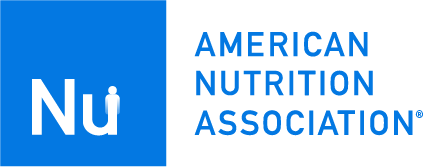The American Nutrition Association and the Board for Certification of Nutrition Specialists, and each of its respective affiliates, directors, officers, and/or agents (collectively, “ANA”) provide this program (the “Program”) solely for the purpose of providing information to participants. The material presented in the Program has been prepared in good faith with the goal of providing accurate and authoritative information regarding the subject matter covered. ANA will endeavor to provide updates and additions to the Program as needed.
The information presented in this Program is not meant to take the place of medical training or intervention. Completion of the Program or any section of it does not confer any practice rights or privileges. Practice rights are based on state licensure laws which vary from state to state and by profession. Participants should familiarize themselves with and abide by the scope of practice regulations as set forth in applicable licensure laws, regulations, and other rules.
ANA makes no representation or warranty of any kind regarding any information, apparatus, product, or process discussed in the Program, and ANA assumes no liability therefore.
WITHOUT LIMITING THE GENERALITY OF THE FOREGOING, THE INFORMATION AND MATERIALS PROVIDED IN THE PROGRAM ARE PROVIDED ON AN “AS-IS” BASIS AND MAY INCLUDE ERRORS, OMISSIONS, OR OTHER INACCURACIES. THE PARTICIPANT ASSUMES THE SOLE RISK OF MAKING USE AND/OR RELYING ON THE INFORMATION AND MATERIALS PROVIDED IN THE PROGRAM. ANA MAKES NO REPRESENTATIONS OR WARRANTIES ABOUT THE SUITABILITY, COMPLETENESS, TIMELINESS, RELIABILITY, LEGALITY, UTILITY, OR ACCURACY OF THE INFORMATION AND MATERIALS PROVIDED IN THE PROGRAM. ALL SUCH INFORMATION AND MATERIALS ARE PROVIDED WITHOUT WARRANTY OF ANY KIND, INCLUDING, WITHOUT LIMITATION, ALL IMPLIED WARRANTIES, AND CONDITIONS OF MERCHANTABILITY, FITNESS FOR A PARTICULAR PURPOSE, TITLE, AND NON-INFRINGEMENT.
This material is the confidential and proprietary information of the American Nutrition Association and may not be shared with any parties other than those who have registered in the Program. Any reproduction or transmission of all or part of the Program materials, whether by electronic, mechanical, recorded, other means, without prior written consent of the American Nutrition Association shall be an infringement.
ANA hereby grants permission to registrants to share the Client Handouts with their clients, but only in the format provided, you may not add any logos, names, or customization and you must maintain on the Handouts the ANA copyright information and branding.
Access to each self-study Program is designated with a specified duration. Participants must complete the Program and view and download materials before the expiration of use. No access to course materials will be available after expiration of the Program. Once a Program is purchased, ANA is unable to issue refunds, credits, or transfers for any Program.
The learner is responsible for meeting all Program prerequisites. Completion of any Program does not entitle the learner to a certification, which involves a separate application process and credential awarded with the Board for Certification of Nutrition Specialists.
